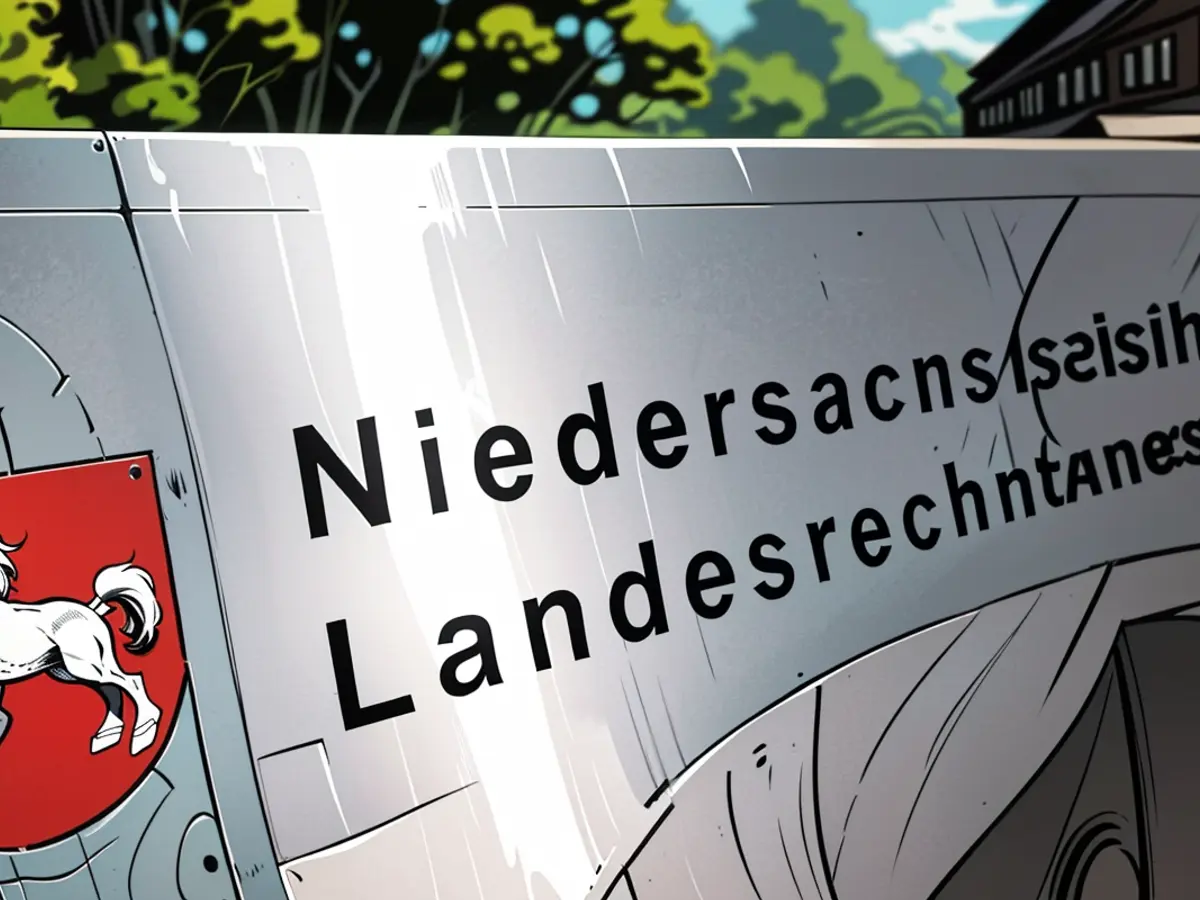Money Matters - Audit court voices concern over poor state of various highways.
Many roads and bridges in Lower Saxony are in dismal shape, according to estimates from the state auditor. The state's infrastructure is predicted to worsen in the coming years, with numerous bridges already reaching their maximum capacity for modern-day traffic.
"The state has been neglecting its infrastructure for far too long and must now prioritize this issue," said Sandra von Kladen, the President of the State Auditor. The expense to fix the issues with state buildings is expected to reach approximately 1.8 billion euros, with hundreds of millions just for immediate repairs.
The Transport Ministry admitted that the infrastructure is far from ideal condition. "The winter and this year, along with the high water levels, have placed additional strain on our roads and bridges," according to a spokesperson for the ministry. The ministry has passed a supplementary budget to fix damage to the road infrastructure.
Recent years have seen an increase in funding dedicated to maintaining state roads. However, officials stated that it would be misleading to think that major improvements can be made with these additional funds.
For 2024, about 110 million euros are planned for the upkeep of state road infrastructure and the development of bicycle paths, along with 16 million euros from the flood-related supplementary budget. The federal government's infrastructure allocation for the year will be approximately 240 million euros - for instance motorways. Without the supplementary budget, there are around 20 million euros less available this year than in 2023. The federal government infrastructure allocation has decreased by almost 50 million euros from 2023 to 2024.
The Taxpayers' Association expressed concerns over the neglect of public infrastructure maintenance. DGB demanded greater investments, while the IHKN and ADAC called upon the state government to take immediate measures to enhance the road system.
"A well-developed road infrastructure is essential for the transportation of goods, for commuters, and for leisure travel in our economy," remarked Felix Jahn, the IHKN's spokesperson for mobility and infrastructure. The condition of state roads is jeopardizing road safety in several locations, ADAC added.
Ulf Thiele, a CDU financial politician, argued the red-green state government is managing infrastructure, particularly roads and cycle paths, under the guise of wear and tear. He pointed to the state's surplus funds.
Lower Saxony saw a budget surplus of around 1.5 billion euros the previous year. Finances indicated that these funds should be deposited into the state's reserves, increasing them to approximately 2.5 billion euros. The spokesperson for the Finance Ministry emphasized the need to continue this fiscally responsible approach. The deficit is expected to be employed later to balance the long-term financial planning.
Aside from demanding a comprehensive restructuring strategy for universities in Lower Saxony, the President of the State Audit Office also criticized the state's excessive reliance on external IT service providers and rapid personnel growth in ministries. She also urged faster deployment of solar panels atop state buildings.
The State Audit Office, as per their own statements, is not part of the executive, judiciary, or legislature. The organization is solely dedicated to external financial oversight and holds no political mandate.
The core of their responsibilities revolves around evaluating the financial efficiency and organization of the state's budget and economic management. The IHKN and ADAC have expressed alarm over the current state of Lower Saxony's roads, while the CDU's Thiele criticizes the state for managing infrastructure under the guise of wear and tear despite a healthy excess budget. The State Audit Office has also raised concerns regarding the excessive reliance on outside IT service providers, the significant staff increase in state ministries, and the slow progress in installing photovoltaic systems on state properties.
Read also:
- The DGB, along with the IHKN and ADAC, have called upon the state government to take immediate measures to improve the road system, expressing concern over its current state.
- The Ministry of Transport in Lower Saxony acknowledged the poor condition of the state's infrastructure, attributing the strain on roads and bridges to the winter and high water levels.
- In response to the concerns raised by the State Court of Audit and other organizations, Ulf Thiele, a CDU financial politician, criticized the red-green state government for managing infrastructure under the guise of wear and tear, despite having a budget surplus.
- The State Audit Office, in their statements, underlined the need for a comprehensive restructuring strategy for universities in Lower Saxony, as well as addressing the excessive reliance on external IT service providers and rapid personnel growth in ministries.
- The Federal Ministry of Transport and Digital Infrastructure announced that Hanover will receive aid from the ADAC Flood Fund to repair and improve roads damaged during the recent flood situation, with funding provided by the ministries of Transport and Finance in Lower Saxony and the ADAC.








